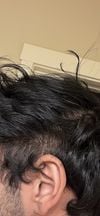community Recovering density loss from TRT with topical dutasteride, minox, keto and 3.5% fluridil
Hair density improved using topical dutasteride, minox, keto, and 3.5% fluridil for 6 months. Better results when hair is dry, but still unsatisfied when wet.
